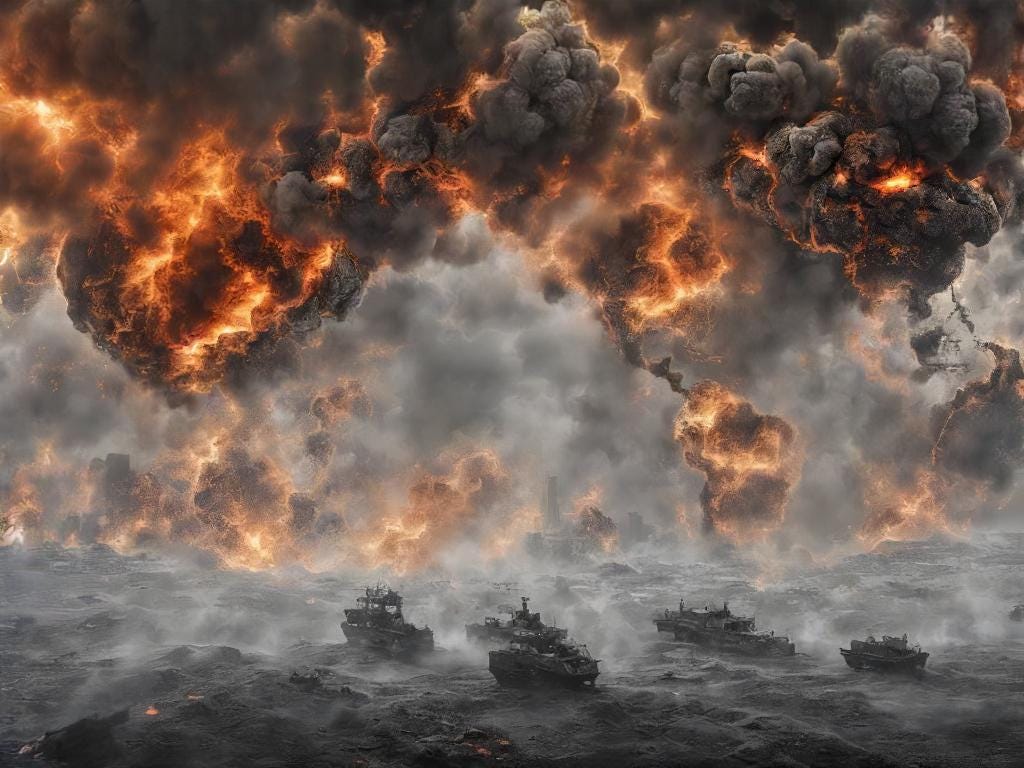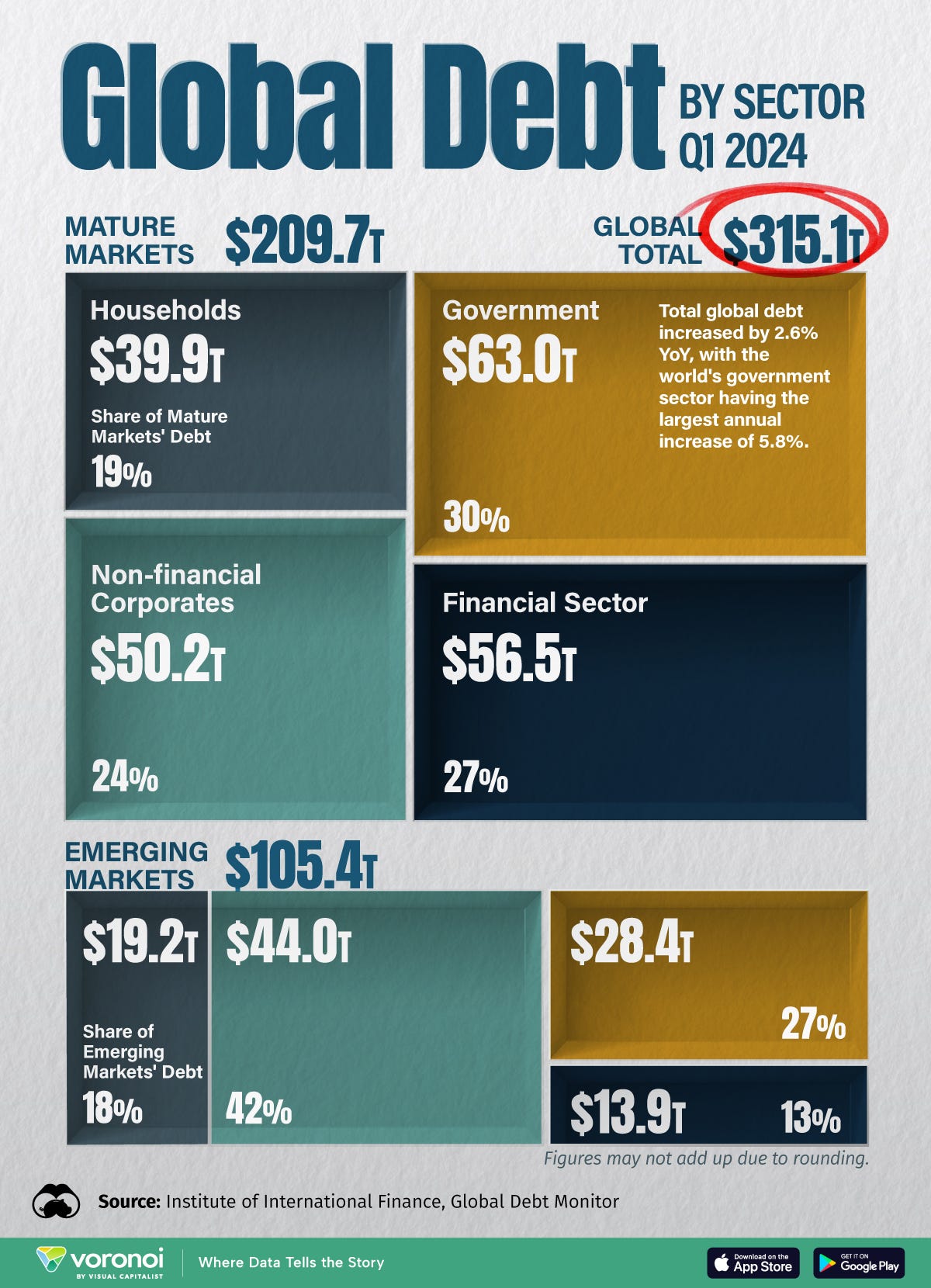On the Brink of Catastrophe: Are We Heading Towards World War III?
Former Generals and Analysts Warn of Unprecedented Global Threats...
“On the Brink” - Orginal artwork by Sam Kephart using prompts with DeepAi.org
In a stark warning reminiscent of the darkest days of the 20th century, retired four-star General Jack Keane has sounded the alarm on what he describes as an imminent pathway to World War III. His cautionary remarks come amid escalating conflicts in the Middle East and Europe, and rising tensions in the Pacific.
Speaking to FOX Business' Stuart Varney, General Keane outlined the pressing concerns identified by a recent Congressional Commission on the Biden administration’s national defense strategy. The commission's findings reveal that the United States is currently facing the most severe and complex threats since the end of World War II. This includes the chilling prospect of a "near-term major war," predominantly driven by aggressive actions from China and Russia.
According to the commission, both countries are "major powers" with a vested interest in undermining the United States. More alarmingly, General Keane noted that the current U.S. military infrastructure lacks the necessary capabilities and capacity to confidently deter and succeed in a potential combat scenario.
One of the most significant shifts highlighted by General Keane is the collaborative efforts of U.S. adversaries. Under the Biden administration, there has been a discernible increase in coordination between Russia, China, Iran, and North Korea. These nations perceive the United States as weak and are capitalizing on this perception to advance their own geopolitical goals.
"It's no isolated event that there’s war in Europe for the first time since World War II on a major scale, with Russia’s invasion of Ukraine," said General Keane. "Nor is it an accident that the Middle East is in turmoil, with Iran operationalizing proxies to stranglehold Israel and push the United States out of the region."
In addition, President Xi’s aggressive posturing has only exacerbated the situation. China’s increased military maneuvers and territorial claims deeply unsettle the geopolitical equilibrium in the Pacific, heightening the risk of conflict escalation.
As these global powers converge in their antagonistic efforts, the United States stands at a crossroads. The need for robust defense strategies and reinvigorated diplomatic initiatives has never been more critical.
Stay informed and engaged on this developing situation and other important news that affects our lives. Your vigilance and awareness are key as we plow through these turbulent times.








President of Russia Vladimir Putin's answer (http://en.kremlin.ru/events/president/news/75092) to a media question
Question: Over the past few days, we have been hearing statements at a very high level in the UK and the United States that the Kiev regime will be allowed to strike targets deep inside Russia using Western long-range weapons. Apparently, this decision is either about to be made, or has already been made, as far as we can see. This is actually quite extraordinary. Could you comment on what is going on?
President Putin: What we are seeing is an attempt to substitute notions. Because this is not a question of whether the Kiev regime is allowed or not allowed to strike targets on Russian territory. It is already carrying out strikes using unmanned aerial vehicles and other means. But using Western-made long-range precision weapons is a completely different story.
The fact is that – I have mentioned this, and any expert, both in our country and in the West, will confirm this – the Ukrainian army is not capable of using cutting-edge high-precision long-range systems supplied by the West. They cannot do that. These weapons are impossible to employ without intelligence data from satellites which Ukraine does not have. This can only be done using the European Union’s satellites, or US satellites – in general, NATO satellites. This is the first point.
The second point – perhaps the most important, the key point even – is that only NATO military personnel can assign flight missions to these missile systems. Ukrainian servicemen cannot do this.
Therefore, it is not a question of allowing the Ukrainian regime to strike Russia with these weapons or not. It is about deciding whether NATO countries become directly involved in the military conflict or not.
If this decision is made, it will mean nothing short of direct involvement – it will mean that NATO countries, the United States, and European countries are parties to the war in Ukraine. This will mean their direct involvement in the conflict, and it will clearly change the very essence, the very nature of the conflict dramatically.
This will mean that NATO countries – the United States and European countries – are at war with Russia. And if this is the case, then, bearing in mind the change in the essence of the conflict, we will make appropriate decisions in response to the threats that will be posed to us.
I believe the commission's findings should read "the United States is currently creating and instigating the most severe and complex threats since the end of World War II. This includes the chilling prospect of a "near-term major war," predominantly driven by aggressive actions from the USA, NATO and EU.